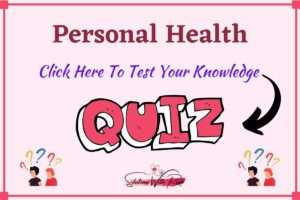Improve your health literacy and become empowered to prevent diseases and ensure optimal health.
Having an ongoing curiosity and passion to increase your personal health is definitely something to aspire to. In fact, when it comes to your health, ignorance may even be better than being completely misinformed. So, I wanted to make sure that you have the most accurate answers to some of the most common health issues. That’s why I’ve decided to compile this list of the most frequently asked health questions and answers.
To make it a bit more intriguing- or challenging- I’ve also created a quiz for you to check your knowledge before and after reading the answers.
So, if you haven’t yet, click the link below to hop on over to take a quick quiz on these frequently asked questions.
Click her to take the Personal Health Quiz
If you’ve taken the quiz already, congratulations!!! Keep reading to discover all the correct answers.
- Improve your health literacy and become empowered to prevent diseases and ensure optimal health.
- Frequently asked health questions and answers
- 1.How many minutes of moderate aerobic exercise do you need per week?
- 2.What is the leading cause of preventable death?
- 3.How long after trying to get pregnant should you consider testing for infertility?
- 4.What is the daily alcohol intake recommendation?
- 5.Obesity is a risk factor for:
- 6.What contributes to obesity?
- 7.What is/are the best tip(s) for preventing diabetes?
- 8.What is/are the warning sign(s) of a stroke?
- 9.Which of these food(s) is/are good for your cholesterol?
- 10.Which disease is known as the silent killer?
- Final words on frequently asked health questions
- Related Topics:
- What's a Keto Diet?
- What about low blood pressure?
Frequently asked health questions and answers
1.How many minutes of moderate aerobic exercise do you need per week?
At least 150 minutes of moderate or 75 minutes of vigorous aerobic activity weekly is recommended.
This quantity equates to at least 30 minutes of exercise five days week. Also, it is recommendable that you reduce the amount of time you spend sitting.
Further, aim do some activities to build muscle strength at least twice weekly. The duration and intensity of your exercise routine should increase with time.
Use this link if you’d like to check out other physical self-care activities that your should practice daily to ensure optimal health.
"The art and science of asking questions is the source of all knowledge". - Thomas Berger
2.What is the leading cause of preventable death?
Smoking is the leading cause of avoidable death (Lariscy, 2019).
Smoking currently results in excess of 7 million deaths annually. Unfortunately, this number will likely keep increasing. In the United States only, smoking causes almost 1 in every 5 deaths.
Not only does smoking decrease your life expectancy by approximately 10 years, but it results in significant disability and morbidity.
If you’re looking for comprehensive advise to overcome smoking or any other toxic behavior, please use this link to check out my post on unlocking behavioral change.
3.How long after trying to get pregnant should you consider testing for infertility?
Couples who are unable to become pregnant after 12 months of regular, unprotected intercourse should seek evaluation.
But, if the couple has known risk factors for infertility or the female is 35 years or older, they may seek evaluation after six months (Lindsay, 2015).
Several tests will be done to help determine if the problem is with the woman, man or both partners. In the United States, approximately 1 in 8 persons suffer from infertility. Notedly, there are numerous causes for infertility.
However, for approximately a third of infertile couples, the cause will remain unknown. If you are suffering from infertility, there is absolutely no need to feel ashamed.
And, if you’re not, please be sensitive when it comes to any issues relating with someone else’s fertility.
4.What is the daily alcohol intake recommendation?
The recommended daily limit is 1 drink a day for females and 2 drinks daily for men. Notably, 1 drink is equivalent to 4 ounces of wine or 12 ounces of beer.
Alcohol is associated with motor vehicular accidents, cancers, health and behavioral problems. Additionally, the risk directly increases with consumption. In fact, it is preferable to not start drinking alcohol if you do not already.
If you suffer from alcohol use disorder, start by exploring your reasons for drinking, identifying your triggers, managing your emotions and getting professional help.

"Asking questions is the first way to begin change". - Kubra Sait
5.Obesity is a risk factor for:
Obesity increases the incidence of heart disease, stroke, diabetes, cancers, osteoarthritis, sleep apnea etc.
Obesity is a medical problem and is a risk factor for numerous diseases. However, it also affects your quality of life and is associated with worse mental health outcomes.
Regardless, lifestyle and behavioral changes are important. Fortunately, even the smallest improvements will likely improve your health outcomes.
6.What contributes to obesity?
There are several risk factors for diabetes including poor diet, a sedentary lifestyle, stress, genetics, some diseases and medications.
Usually, obesity results from a combination of factors. Unfortunately, preventing obesity is more difficult for some persons than others. As such, these individuals may need to put in a lot of extra effort.
However, if you’re suffering from obesity, set your goals, speak to your health care provider and use all the resources available to help you reach a healthier weight. It’s an uphill battle that’s worth every effort.
7.What is/are the best tip(s) for preventing diabetes?
Diabetes can be prevented or delayed by eating healthier, exercising and weight loss.
Please note, that these prevention strategies are applicable to type 2 diabetes and not type 1 diabetes. Even if your are prediabetic, these lifestyle changes will still help you prevent or further delay the development of type 2 diabetes.
Signs and symptoms of diabetes include: increased thirst, increased urination, increased hunger, weight loss, yeast infections, delayed wound healing, vision problems and fatigue.
8.What is/are the warning sign(s) of a stroke?
The warning signs below will help you identify a stroke.
F: Face Drooping
A: Arm Weakness
S: Speech Difficulty
T: Time to call 911
These symptoms may be quite sudden. Also, the person’s balance and/or vision may also be affected. There are different types of strokes. However, if you suspect a stroke always seek prompt medical care to improve your health outcomes. Stoke is a major cause of death and disability.

"When we engage people across ideological divides, asking questions helps us map the disconnect between our differing points of view". -Megan Phelps-Roper
9.Which of these food(s) is/are good for your cholesterol?
Foods that lower cholesterol include fruits, vegetables, whole grains, low-fat or fat-free dairy products, lean protein sources, nuts, shrimps, seeds, and liquid vegetable oils.
High cholesterol is a significant risk factor for heart disease and stroke. Unfortunately, many persons with high cholesterol may simply be unaware that they has this health issue. As such, they will likely take no extra steps to get it under control.
However, not all cholesterol is bad. There are also ‘good’ cholesterol. Consuming the foods mentioned above will help you increase the ‘good’ cholesterol which your body needs.
10.Which disease is known as the silent killer?
According to Mensha (2019), hypertension is known as the silent killer. Hypertension acts as an independent risk factor of cardiovascular morbidity and mortality in those who are healthy because they do not show symptoms of the disease.
As such, the early detection of hypertension or high blood pressure is crucial. Astonishingly, a third of the American adult population suffers from hypertension. Yet, for many persons their blood pressure remain uncontrolled.
This highlights the importance of really prioritizing your personal wellness and ensuring that you are continually taking active steps to increase your quality and quality of life.
Use this link if you’d like to check out other physical self-care activities that your should practice daily to ensure optimal health.
Final words on frequently asked health questions
I sincerely hope that you continue your quest for increasing your knowledge on health and personal wellness. Knowledge is fundamental for changing behavior and improving health outcomes.
Although there are numerous reasons why persons may have an unfavorable health status, your health illiteracy is perhaps one of the few things that you can easily do something about.
Just keep investing in your wellness, your future self – and loved ones – will thank you.
That’s the end of the frequently asked health questions. If you’d like to retake that quiz, here’s the link for you. Good luck!
Personal Health
Have you ever wondered how good your general health knowledge is? Take this quick quiz to find out.
Here are 10 essential questions related to your personal health and wellness.

Question
Your answer:
Correct answer:
Your Answers
"We get wise by asking questions, and even if these are not answered, we get wise, for a well-packed question carries its answer on its back as a snail carries its shell". -James Stephens
Let me know if you found this content on frequently asked health questions useful, remember to subscribe so that you could receive other helpful tips.
Related Topics:
What’s a Keto Diet?
A ketogentic “Keto” diet is a diet that is low in carbohydrates. Subsequently, the extra needed calories in the meal is usually replaced by fats or proteins.
Essentially, this is how a keto diet works: Your body uses carbohydrates as fuel for energy.
If you decrease your carbohydrate intake, “ketosis” will occur. This is where your body uses fat for the fuel instead.
There are numerous studies showing the benefits that a keto diet has on improve weight and decreasing the incidence of numerous diseases.
What about low blood pressure?
When it comes to hypotension or low blood pressure, it’s really does depend on the individual, their symptoms and what their usual blood pressure is.
As such, what may be considered low blood pressure for some individuals, may be quite normal for many other persons.
I’ve had so many patients who tried to increase their blood pressure even though they didn’t have any symptoms, just because they considered it to be low.
So when in doubt, make sure you ask your health care provider. Regardless, most experts would say that low blood pressure is anything below 90/60 mm Hg for an adult.
Common symptoms of hypotension include dizziness, fatigue and blurred vision.
References:
Carson, J. A. S., Lichtenstein, A. H., Anderson, C. A. M., Appel, L. J., Kris-Etherton, P. M., Meyer, K. A., Petersen, K., Polonsky, T., & Horn, L. V. (2020). Dietary Cholesterol and Cardiovascular Risk: A Science Advisory from the American Heart Association. Circulation; 141: 39–53.
CDC (2020) Stroke Signs and Symptoms
Lariscy, J. T. (2019). Smoking-attributable mortality by cause of death in the United States: An indirect approach. SMS Population Health; 7: 100349.
Lindsay, T. L. (2015). Evaluation and Treatment of Infertility. American Family Physician; 91(5):308-314.
M, G. A. (2019). Commentary: Hypertension Phenotypes: The Many Faces of a Silent Killer. Ethnicity and Disease; 29(4): 545–548.
Mostofsky, E., Mukamal, K. J., & Rimm, E. B. (2016). Key Findings on Alcohol Consumption and a Variety of Health Outcomes from the Nurses’ Health Study. American Journal of Public Health; 106(9): 1586–1591.
NHS (2019) Obesity
Rushana Greenidge-Horace











Leave a Reply